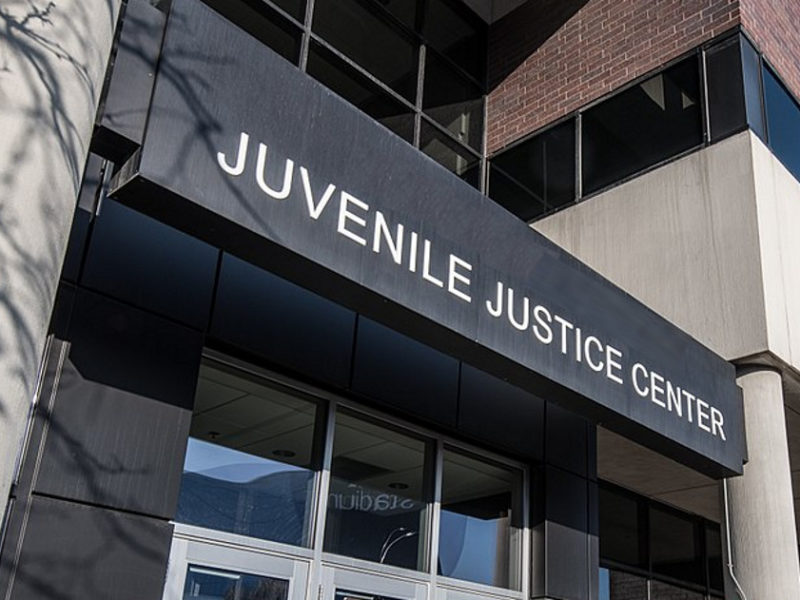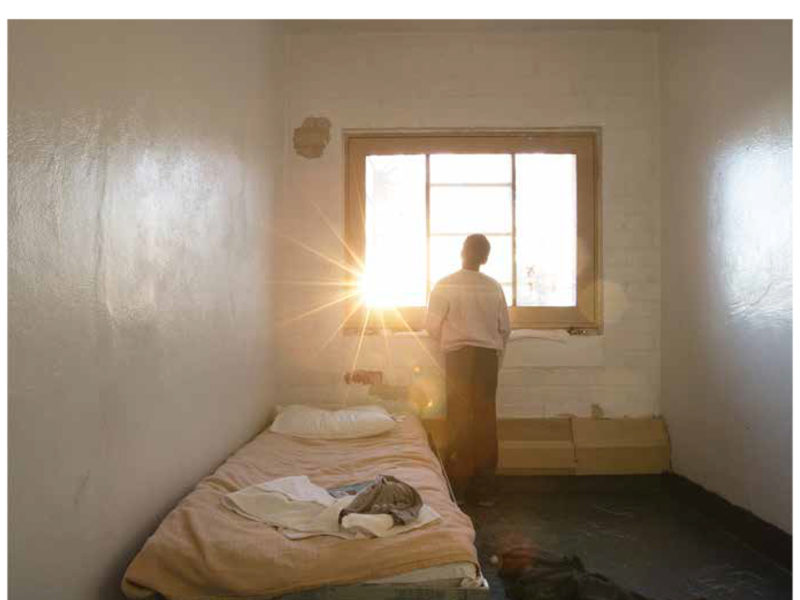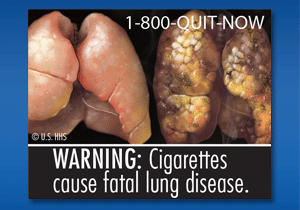Unspent American Rescue Plan funds to lower the number of students who wind up in the juvenile justice system. The impact of racial disparities resulting from handling children through the adult criminal justice system. Innovative law school partnerships to aid youth simultaneously in the foster care and juvenile justice systems. How children without lawyers fare in immigration proceedings... Juvenile Justice Resource Hub curates those and other analyses, reviews and research on juvenile justice policy, practice, reform and programs.

For One Former Inmate, A New Life
|
NEW YORK -- Getting shot was probably a critical turning point in Ray Tebout’s life, he says. It was 1990. Tebout had just turned 16 and was living on the streets of the South Bronx, selling drugs and doing his best to survive. And then some guy had to go and shoot him in the foot. The day of the shooting Tebout was on the corner selling drugs when “a guy wanted something from me,” he said.

Georgia Bill Would Make Smuggling Cell Phones, Cigarettes Into Youth Detention Centers a Felony
|
Smuggling cellphones or cigarettes into a Georgia youth prison would become a felony under a bill approved without opposition Thursday by the Georgia Senate. It's already a crime to provide weapons, drugs or alcoholic beverages to youths in the custody of the state Department of Juvenile Justice. Senate Bill 366, sponsored by Sen. Johnny Grant (R-Milledgeville), expands that ban to other items that have turned up in quantity recently as investigators made surprise visits to each of the state's 26 youth detention centers. Authorities showed off a large box of confiscated cellphones next to tobacco products, handmade weapons and other contraband at the most recent meeting of the board of the state Department of Juvenile Justice. Also on display was what appeared to be a youth's handwritten business plan calculating the sums of money that could be made selling cigarettes and amphetamines to other offenders.
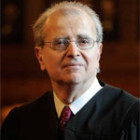
New York’s Highest Ranking Judge Urges Changes to State’s Juvenile Justice System
|
Tuesday, Chief Judge of the State of New York Jonathan Lippman presented several proposals to the state Legislature during his annual State of the Judiciary address, including the creation of a new juvenile court to handle cases involving 16-and17-year-olds tried for nonviolent offenses. Currently, New York is one of only two states in the nation, along with North Carolina, that automatically tries 16-and 17-year-old offenders as adults. According to Judge Lippman, the state’s legislation, “flies in the face of what science tells us about adolescent development.”
Judge Lippman’s proposal would allow judges in adult-offender courts to serve as Family Court judges in cases involving nonviolent 16-and 17-year-olds offenders. Juveniles found guilty in such instances would be subject to Family Court judgments, which generally mete out less harsh adjudications, frequently substituting treatment services for incarceration. Additionally, cases under the arrangement would be sealed, and defendants would not incur a criminal record pending a guilty verdict.

No Remorse? One Law Professor Studies the Impact of Emotion in the Juvenile Justice System
|
Sitting behind her strikingly barren desk, with the bright, mid-winter sunlight breaking through the trees and streaming through her office windows, Martha Grace Duncan, a professor at the Emory University School of Law, in Atlanta recounts the case of nine-year-old Cameron Kocher. As she speaks her small, compact frame remains nearly motionless, betraying no emotion. But her eyes tell the story, portraying the internal mix-up of sadness, passion and nerdy intensity that she feels about the topic. Duncan may not wear her heart on her sleeve, but if you pay attention it’s not hard to find. In March 1989, on a cold, snowy day in the Pocono Mountains of northeastern Pennsylvania, Kocher fatally shot a seven-year-old playmate with a high-powered hunting rifle.

New Report Uncovers “Alarming” Rate of Child Hospitalization Due to Abuse
|
The March 2012 issue of Pediatrics will contain the first quantified findings detailing the hospitalization rates of children due to serious physical abuse in the United States. The report, released by the Yale School of Medicine, uncovered 4,569 instances of children being hospitalized due to serious abuse in 2006, with approximately 300 cases in which the children died as a result of serious injuries. According to the findings, children were at their highest likelihood for serious injury within the first 12 months of life, with a projected 58.2 per 100,000 children within the age group being hospitalized for abuse. Researchers at Yale-New Haven Children’s Hospital used data from the Kids’ Inpatient Database (KID) to estimate the number of incidences in which children younger than 18-years-old were hospitalized due to serious physical abuse in 2006. The Kids’ Inpatient Database was prepared by the Healthcare Cost and Utilization Project, under the Agency for Healthcare Research and Quality.
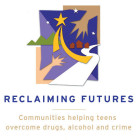
Reclaiming Futures Updates Model for Teen Recovery
|
Reclaiming Futures' six-step model for helping young people who are struggling with alcohol, drugs and crime is receiving an update. The program began in 10 communities in 2001 with a $21 million grant from the Robert Wood Johnson Foundation. The mission was to reinvent how juvenile courts, police, and communities work together in the interests of young people. The six steps in the Reclaiming Futures model were “initial screening,” “initial assessment,” “service coordination,” “initiation,” “engagement” and “transition.” Previously, the final step in the program had been called “completion,” but according to Susan Richardson, Reclaiming Futures’ national executive director, the name wasn’t complete. Writing on the Reclaiming Futures website, Richardson said completion “is an incomplete and sometimes inaccurate term for the complex work of transitioning out of ‘systems’ and into successful community life.”
Transition, she writes, more accurately portrays the “representative and interactive phase of transitioning youth to life outside of the justice system.”
Currently, the Reclaiming Futures model is used in 29 communities across the country.

Anti-Anti-Bulllying Bill May Make Comeback in Tennessee
|
A controversial anti-bullying bill that faltered in Tennessee’s General Assembly last year seems to be set for a comeback as lawmakers convene Tuesday. The measure -- pushed by David Fowler, a former state senator and president of the Family Council of Tennessee (FACT) -- would alter the current anti-bullying laws in the state, effectively creating a loophole that would protect students from reprimand for expressing their “religious, philosophical, or political views” providing that that they do so without physically threatening another student and/or his or her property. Additionally, the bill would disallow anti-bullying programs from using materials or training policies that “explicitly or implicitly promote a political agenda [and] make the characteristics of the victim the focus rather than the conduct of the person engaged in harassment, intimidation or bullying.”
In the December 2011 FACT newsletter, Fowler said that the purpose of the proposed legislation is to protect “the religious liberty and free speech rights of students who want to express their views on homosexuality.” In a recent Chattanooga Times Free Press article, he said that the intent of the bill was to “stop bullying” without creating “special classes of people who are more important than others.”
Both Fowler and the proposed legislation have come under fire from many gay rights activists, with several opponents of the bill saying that it would give students a “license to bully” gay teenagers. “This kind of legislation can send a message that it’s OK to hate and we’ll even give you religious sanction for it,” said Chris Sanders of the Tennessee Equality Project. “As long as you say it for religious reasons, you’ve got backup.”
On a recent FACT radio broadcast, Fowler said “the purpose of bullying statutes is to prevent people or the property being harmed, not their mere sensibilities of being offended.”
According to a spokesman for state Sen. Jim Tracy (R), who sponsored the bill last year, members of the Tennessee Legislature are “reviewing the legislation,” and seeking to “narrow” the “very broad” bill in its current incarnation.

New Year’s Resolutions From Juvenile Drug Court
|
It’s easy to make New Year’s resolutions. Keeping them, though, takes a resolution that many, well-intended people simply don’t have. For those whose plans are to lose a stubborn 10 pounds or run a first-ever marathon, the consequences of failure are minimal. For teenagers who have spent at least some of 2011 stoned, drunk and in front of a judge, failing to honor their resolutions can have lifelong results. In Marietta, Ga., five high school students who are participants in the Cobb County Juvenile Drug Court talked about 2011 and looked ahead to 2012.

New Study Dispels Some Notions About Sexting
|
The journal Pediatrics has published a new study on the prevalence of teens sending sexually explicit texts and nude images of themselves to other teens. The study reports that 2.5 percent of children interviewed age 10 to 17 have appeared in or created somewhat or nearly nude photographs or videos. However, only one in 100 has created images that are sexually explicit enough to be considered a breach of child pornography laws, such as showing breasts, genitals or bottoms.
The study, published Dec. 5th, is based on 1,560 in-depth telephone interviews with minors. It is one of the largest surveys yet to examine the subject.

Penalties For Drug Use at NCAA Schools Varies Widely
|
At the end of October, three Louisiana State University football players were suspended for one game after testing positive for synthetic marijuana. This week, three University of Georgia running backs were suspended for one game when they tested positive for marijuana use. While the NCAA publishes an annual list of banned substances, each school may enforce that ban differently. In the wake of the LSU and UGA suspensions, CBS Sports surveyed nearly 70 public NCAA Division I schools about what their specific policies are. According to the CBS story, Georgia suspends players for 10 percent of games on the first positive test and 50 percent on the second positive.
